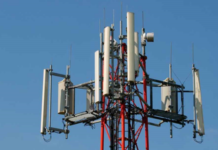Nigeria and Danger of Global Tech Layoffs
TECHDIGEST – With layoffs by giant tech companies reaching alarming proportion, there are fears that the trend may soon hit Nigeria. This reality in addition to Nigeria 32 per cent unemployment figure should concern whoever emerges president of Nigeria in forthcoming election, writes Nosa Alekhuogie
The tons of quick spins of global tech giants laying off their workforce, spills a worrisome reality on the face of job security and the viability of the global tech industry.
With the global numbers of laid-off workers reaching about 75,000 plus in January alone, this global concern is set for critical preparedness in emerging tech industries like that of Africa and Nigeria to be precise. It is crucial to ascertain the degree of impact the rallying layoff trend will have on the Nigerian tech space when it eventually arrives.
There is certainly no room for extended debates about whether or not tech startups or organisations in Nigeria are being hit by the current situation. We can trace this back to 2022 when we saw several Nigeria startups jump on the layoff spin to save themselves but in 2023, experts anticipate more layoffs if the right person is not voted as the president of Nigeria in the forthcoming general elections. If the right policies and regulations are not stamped, the intensity of what will hit the Nigerian tech space will be more than crippling. It is based on this that this review will be looking at the tech enabling pointers from the documents of the three major contenders for the 2023 Nigerian Presidential Seat – Peter Obi, Bola Ahmed Tinubu and Atiku Abubakar.
READ ALSO: FG targets three new tech unicorns in 2023
Nigeria Tech Space
Former governor of Anambra State and the Labour Party presidential candidate, Peter Obi, sometime last year released his 72 paged manifesto titled ‘It is Possible: Our Pact with Nigerians.’ In this document, he detailed his focus for the technology sector and stressed that his government would take to exploring the tech in confronting terrorism, up-skilling young Nigerians, and expanding the Science, Technology, Engineering, and Mathematics (STEM) fields. In his drive to transition the country into a production economy, he stated that he would leap Nigeria into the 4th Industrial Revolution (4IR) through massive adoption in of tech in education, transportation, agriculture, clean energy, and public-private industrial engagements. He was also quick to mention that technology will be infused into the public policy sector which will help drive economic and social development. Obi also proposed the idea of having a national broadband as well as e-commerce map which he intends to explore in addressing the wider technological reach for young people.
Despite Obi’s articulated intentions for the Nigerian people, he still doesn’t address the core issues underling the Nigerian tech space. What is visible are his substantive plans to infuse technology into the system and not to drive it as a running industry. To drive a system or an industry, such plans need to be guided and empowered by regulations and policies many of which Obi’s manifesto seemingly shy away from.
A typical example as cited in his 72-page document, was his silence on how to increase internet access, digital inclusion, and data protection through a wholesome approach to innovations – foreign or home grown.
He failed to talk about the Nigerian Startup Bill and also, talk expressly about his plans for Intellectual Property of innovators who are going to be the star players in his consumer-to-production transformational goal. It is important to also slice it in that Obi has refused to trend along the global tech space technologies, which are Artificial Intelligence, Blockchain, Cryptocurrency, and Extended realities. Rather what we see him do is to indirectly infuse this in his idea of technology, which is typical of what the present government did when they were campaigning in 2015.
Savaging Nigeria Tech Space
In his 80-page manifesto titled, “Renewed Hope”, Bola Ahmed Tinubu, the All-Progressives Congress (APC) presidential candidate, seems to have an elaborate plan for the Nigerian tech industry, regarding his commitment to adopting technology as a tool to tackle infrastructural, economic, and social developmental needs. For him, with technology the country can effectively combat insecurity, multiplicity of roles, poor irrigation systems, moribund tax systems, agriculture lags, educational slags, pipeline vandalism and others. He also stated that he would develop tech hubs and parks, which will drive increase interest of accelerators and angel investors within the space. Tinubu, being aware of the role of blockchain, mentioned that he will drive favourable policies for wider adoption of blockchain in finance, identity management, and revenue collection. He hinted that he would continue the eNaira idea and increase scholarship schemes for girls in tech.
It is easy for Nigerians to be swayed by the articulation of Tinubu’s manifesto for the Nigerian tech Industry, but it is crucial that we see look at this objectively. A lot of his intentions are not any different from what we received from past governments, in fact, what we see is a doctored manifesto that seems to address superficial issues around the Nigerian tech space.
Read Also:
For instance, he proposed one million tech jobs in the first two years of his administration, which is typical of the promises we have had in the past. In his manifesto, there is no clear provision for strategies by which many of his intentions will be achieved. As regards his comment on Intellectual Property, what Nigerians see is a dumped idea of reviewing legislative framework for copyright and intellectual property but what happens to him stating his implementation model expressly? On his blockchain touchpoint, it is obvious that what he did was to win over young people while denying them his full interpretation of blockchain – which a system that will only be usable by the government and not general techpreneurs. This is seen in his careful mention of crypto as an asset as opposed to it being a currency. That is, there is a foreseeable threat to crypto startups in Nigeria when he eventually wins the elections and as such startups with this business should begin to prepare ahead. In a concise approach, it is objective to state that what Tinubu is bringing on board is no newer to the system we already have.
Investing in Tech
For Atiku Abubakar, a one-time vice president and the current presidential candidate for People’s Democratic Party (PDP), in his 115-page manifesto titled, “A Covenant with Nigerians”, there will be a holistic approach to drive educational, economic, and infrastructural structures hung on technology and innovations. To him, this is going to be a means to further continue the injection of technology in other economic sectors. Like his counterparts, he seemingly sees technology as the best way to address insecurity needs which will increase ICT related investments.
Regarding technology adoption, Atiku pressed in on promoting research in local science and technology through his establishment of a National Research and Innovation Fund which will have specified funding advantages for employer-based training schemes, trainers- support schemes, and grants for tech related ideas.
His interest also stretched into training and empowerment in critical tech areas like renewable energy, solar and wind technologies, nanotech, and Artificial Intelligence.
Unlike others, Atiku spreads his wings into policies merger wherein he talked about compacting regulatory bodies to reduce redundant structures. In his manifesto he intends for the Trade, and Investment to embody the Trademarks, Patents, and Designs Registry (TPDR), National Office for Technology Acquisition and Promotion (NOTAP), and Nigerian Copyright Commission (NCC) to be merged into an agency concerned with Intellectual Property Rights. He also proposed the creation of a Technology Support Program (TSP) that will be funded by a Diaspora Bond. This he hopes will produce an expansive blockchain technology and crypto policy with an income generative focus for Nigeria.
In this manifesto is another wild articulation of hopes that are like what we have experienced as a country in the past.
This is because most of the proposal bench on surface ideas and for the few that held the Nigerian industry interest, it is quick to say that they lack sufficient details on implementation. For example, the merge idea of multiple agencies will further increase bureaucracy for tech startups and innovators in Nigeria as the Intellectual Property agency will run a monopoly kind of system that will further worsen what the industry is presently contending with. It is also observable that popular campaigns on infrastructural development are far-fetched in the political quarters. For Atiku, the standout idea is that of him recognising the blockchain potential, his acceptability of its monetary and generative power for the country and the people of Nigeria. This will go a long way in easing tensions around whether the ban on cryptocurrency will be lifted as these forms a part of the system.
Why Nigerians Should be Concerned
It is practical to state that most of the manifestos of these major aspirants have not clearly devised a strong and cushioning strategy for Nigerian tech players. This is because many of the listed ideas have still not dug deep into the protective corners of what facilitates a healthy tech industry both for techpreneurs and tech talents in the country.
Also, none of the aspirants clearly outlined policies and implementations to safeguard local and foreign investors instead what we find is them pushing the absorption model of winning over investors into the country. Aside from Obi who clearly gives a foreseeable hope in terms of his consumption-to-production economic strategy, what other aspirants are bringing on board are recycled ideas typical of the present government and this in no way is sufficient for techpreneurs to continue holding on to their staff.
It is also important to state that inflation and interest rates are principal drivers of the layoffs globally but even in the abrupt manifestos presented, many of which touched on these skeletally, there is no assured hope that going forward the investment ropes will be firmer for tech companies in the countries. This is because investors want to be sure of the generative potentials of their investments as well as they are concerned about the lifespan of running businesses in Nigeria. It is not enough for bills to be reviewed, what tech startups are asking for daily are policies that empower them to create and grow.
It is also alarming to identify that despite the dreamy manifestoes pushed forward by these presidential aspirants, none of them arrived at the point of up-scaling technology as a core economic diver in this present age. They all mentioned that they would infuse tech into almost all the sectors, but this infusion is a secondary motive – meaning, tech will be a secondary idea to drive the economy. This is not what is printable in other parts of the world where there are economic stability of some sort. Rather what is experienced in most of these thriving nations is the localisation of technology to advance productivity, innovation, and economic stability. If all of these are not factored into the reality of these coming rulers, what then will safeguard the tech companies when the economic realities begin to choke them the same way it is choking the big tech players like Amazon, Google, Alphabet, and others.
It therefore remains unarguable that the Nigerian tech industry will someday be hit with her share of the revolving recession. It is safe to say that even with the presidential aspirants contending for the number one seat in the country, we are only as safe as much as we can be because none of these aspirants has holistically mapped out a blueprint of maximum safety for the industry.
The knowledge that the Nigeria tech industry is an emerging one also reduces the pressure on us because presently the country and the continent of Africa – seem to have the future market for technology in the coming years due to her ownership of the youngest population in the world. If this is true, techpreneurs are to consistently live within their business means while scouting aggressively for continuous growth.
Source : Thisdayslive.com



















